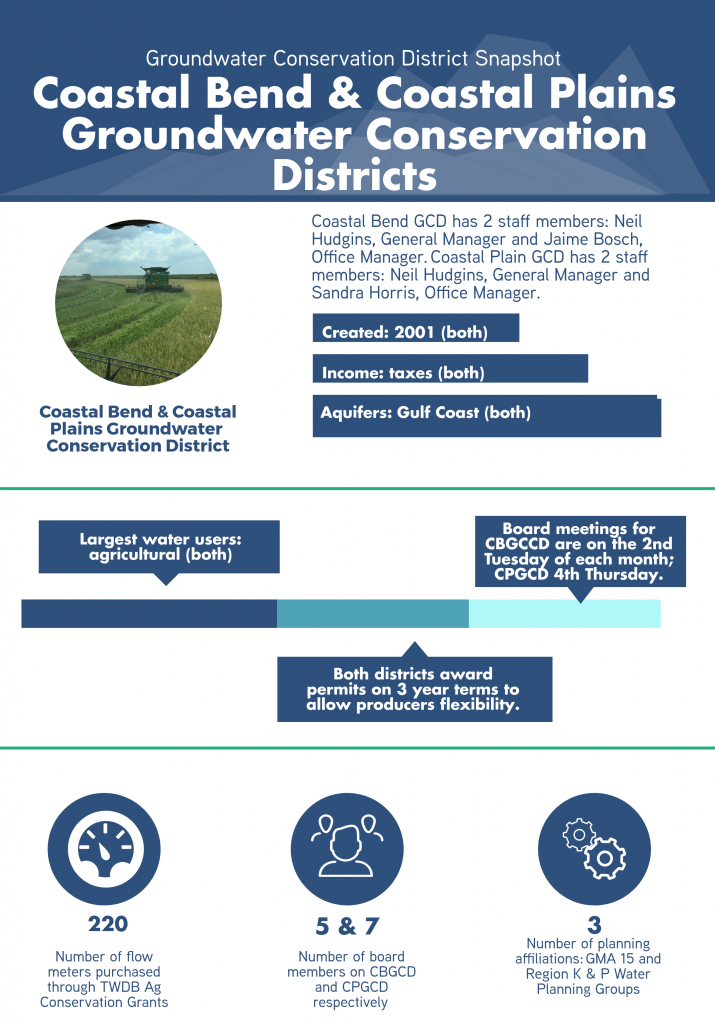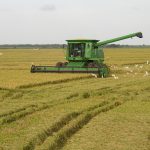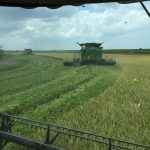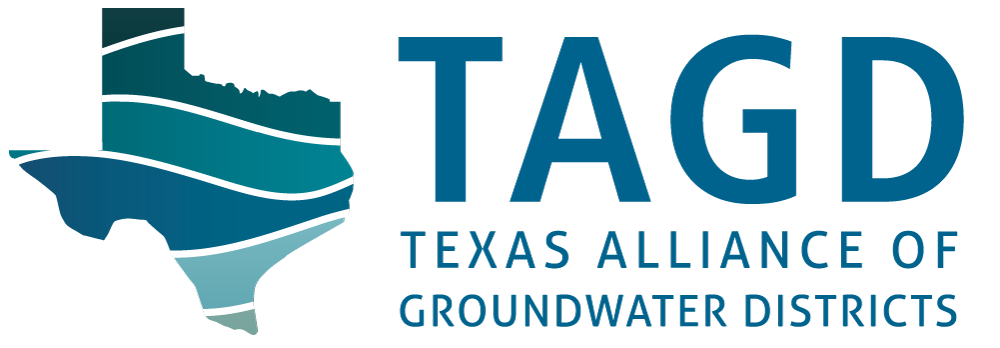Coastal Bend & Coastal Plains GCDs

In this article, we look at two single county districts that have similar rules and operations and are managed by the same general manager.
Permitting
Agricultural irrigation is the biggest groundwater user for both Coastal Bend GCD (CBGCD) and Coastal Plains GCD (CPGCD). Given the large demand agriculture places on groundwater resources in the two districts, both boards made decisions to permit on a beneficial use basis and have established recommended permitted amounts for each type of crop based on averages from historic metered data. These recommended permitted amounts are based on particular crop needs and were established as guidelines to assist staff in reviewing permit requests. Permits are based on irrigated acreage and are structured on three year terms. The permit is given as a total volume of water over three years and permit holders may make their own allocations over those three years. This permit structure is meant to give flexibility to agricultural produces as they try to counter fluctuations in rainfall.
GCD Programs
Ag Conservation Grants
Both CBGCD and CPGCD have received funds through the Agricultural Conservation Grants awarded by

the Texas Water Development Board (TWDB) several times over the past 12 years. Funds awarded through the program have been put towards the purchase of 220 flow meters. Beginning in January 2017, CBGCD required all irrigation wells in the district to be equipped with a flow meter. With that in mind, CBGCD again applied for TWDB’s Ag Conservation Grant program, in order to equip the remaining 400 unmetered well owners. With a cost ranging from $1000-1400 per meter, the assistance provided through the grant program is a welcome offset to those costs.
Hurricane Harvey
Wharton County experienced vast flooding during Hurricane Harvey with approximately 2300 residences were affected by it. Many of those homes are in rural areas and likely rely on well water, making 1,000s of wells in Wharton County potentially exposed to the impact the hurricane. Following the hurricane, Texas A&M AgriLife Extension Service in partnership with others launched a campaign to provide water quality testing to effected well owners. In launching the campaign, Texas A&M AgriLife Extension Service contacted CBGCD to act as a resource to provide them with information on potentially impacted well owners. CBGCD acted as a resource to well owners, informing them of the free water quality testing available and referring them to the TWON program.
Challenges
 For both CBGCD and CPGCD, agricultural irrigation places the biggest demand on groundwater resources. The amount of groundwater agricultural irrigators pump depends heavily on how much local rainfall is received. This translates into one of the tougher challenges for both districts as they try to plan for vast variations in pumping due to the vast variations in local rainfall. One way the GCDs have tried to mitigate this challenge is to issue agricultural irrigation permits on a three year basis. This allows producer flexibility in their planning and the ability to adapt to the variations in rainfall.
For both CBGCD and CPGCD, agricultural irrigation places the biggest demand on groundwater resources. The amount of groundwater agricultural irrigators pump depends heavily on how much local rainfall is received. This translates into one of the tougher challenges for both districts as they try to plan for vast variations in pumping due to the vast variations in local rainfall. One way the GCDs have tried to mitigate this challenge is to issue agricultural irrigation permits on a three year basis. This allows producer flexibility in their planning and the ability to adapt to the variations in rainfall.
Helpful Resources
Visit the districts websites Coastal Bend and Coastal Plains.
